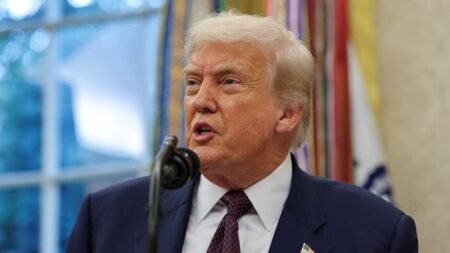Kash Patel is a prominent American attorney and government official known for his extensive work in U.S. intelligence and national security. His career has been marked by important roles in congressional investigations, the Department of Defense, and the National Security Council. Patel rose to public attention during the Trump administration, where he played a crucial part in high-profile inquiries into intelligence agencies and foreign interference in U.S. elections.
Born in the United States to Indian immigrant parents, Kash Patel pursued higher education at George Washington University. He later earned a law degree from the George Washington University Law School. His academic background prepared him for a career at the intersection of law, intelligence, and national security. Early in his career, Patel served as a staff member on the House Intelligence Committee. In this role, he worked on investigations that examined Russia’s interference in the 2016 U.S. presidential election and the conduct of U.S. intelligence agencies during that period.
Patel’s work on the House Intelligence Committee brought him into close contact with key figures in U.S. intelligence and politics. He was involved in scrutinizing how intelligence agencies operated, particularly in relation to the investigation of the Trump campaign and alleged Russian collusion. This work helped establish his reputation as a knowledgeable and persistent investigator focused on oversight of intelligence practices.
In 2020, Kash Patel’s career advanced significantly when he was appointed as Chief of Staff to Acting Secretary of Defense Christopher Miller. During this time, Patel was responsible for helping lead the Department of Defense and advising on national security issues. His position placed him at the heart of defense policymaking during a critical time in U.S. history, including the final months of the Trump administration and amidst growing concerns about foreign threats to national security.
Patel also worked closely with Attorney General William Barr and the Justice Department. He was part of efforts to examine the origins of the Russia probe and allegations of bias within the Federal Bureau of Investigation (FBI) and other intelligence agencies. This work was highly scrutinized and at times controversial, as it involved deep investigations into the U.S. intelligence community itself. Despite the controversies, Patel remained a strong advocate for transparency and accountability in intelligence operations.
Throughout his career, Kash Patel has emphasized the importance of protecting U.S. national security from foreign threats, especially espionage and cyberattacks. He has been particularly vocal about concerns regarding China and Russia’s attempts to gather sensitive information and influence American institutions. His public statements and work reflect a focus on countering foreign intelligence efforts and safeguarding military and government secrets.
In recent years, Patel has continued to be cited by officials and media as an expert on intelligence and security matters. His insights are often sought in discussions about espionage, foreign interference, and the challenges faced by U.S. agencies in protecting national interests. For example, Patel has commented on cases involving Chinese espionage targeting American military personnel, underscoring the risks posed by foreign governments attempting to conduct secret operations on U.S. soil.
Kash Patel’s career showcases the complexity of intelligence oversight and the challenges involved in balancing national security with political and legal scrutiny. His work has contributed to greater awareness of the threats facing the United States from foreign espionage and has helped shape policy responses to these issues. While some of his efforts have sparked debate, Patel remains an influential figure in the ongoing conversation about intelligence, law enforcement, and government accountability.
As the United States continues to face evolving security challenges, individuals like Kash Patel play a vital role in monitoring threats and advising government leaders on how best to respond. His background in law, experience in congressional investigations, and leadership roles within the Department of Defense provide him with a unique perspective on safeguarding the nation’s security. The public and policymakers alike watch closely as Patel and others navigate the complex landscape of intelligence and national defense in an increasingly connected and contested world.







